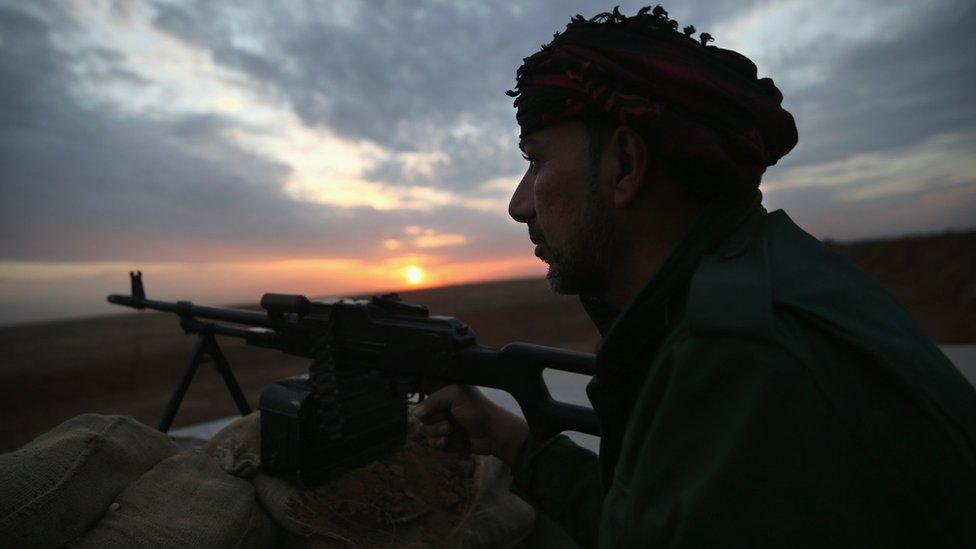Samples 'confirm IS used mustard agent in Iraq attack'
- Published

Kurdish Peshmerga fighters are battling Islamic State militants across northern Iraq
Sources at the global chemical watchdog say sulphur mustard was used last year in an attack on Kurdish forces in Iraq blamed on Islamic State (IS) militants.
The Organisation for the Prohibition of Chemical Weapons (OPCW) was sent samples after 35 Peshmerga fighters became ill near Irbil in August.
On Monday, the sources said the samples tested positive for sulphur mustard.
If confirmed, it would be the first known use of chemical weapons in Iraq since the fall of Saddam Hussein.
OPCW experts recently concluded that sulphur mustard was used in August in neighbouring Syria, during fighting between IS and rebel forces.
Sulphur mustard - commonly known as "mustard gas" although it is liquid at ambient temperature - is a powerful irritant and blistering agent which causes severe damage to the skin, eyes and respiratory system and internal organs.
'Black liquid'
The OPCW's report does not apportion blame for the attack in Iraq on 11 August, sources in The Hague told the Reuters and AFP news agencies.
But when the Kurdistan Regional Government's ministry of Peshmerga affairs first reported the incident, it made it clear that it held IS militants responsible.
The ministry said the affected Peshmerga fighters had been deployed along the frontline with IS, near the towns of Makhmour and Gwer when about 37 rounds exploded beside them, releasing a "white dust and black liquid". Tests on blood samples "revealed traces of mustard gas", it added.
OPCW spokesman Malik Ellahi would only confirm on Monday that the watchdog had sent a team of experts to Iraq to assist the government's investigation.
"The team completed its mission and the OPCW has shared the results of its technical work with the government of Iraq," a statement said, according to AFP.
The OPCW's Executive Council is expected to discuss the findings next month.
Experts are still uncertain about how IS might have obtained chemical weapons.
One unnamed diplomat told the Reuters news agency that it was possible the sulphur mustard was obtained from the Syrian military's stockpile, which was supposedly destroyed after a deadly attack involving the nerve agent sarin outside Damascus in August 2013.
However, CIA director John Brennan said, external on Sunday that IS militants were believed to have access to the necessary precursor chemicals and the capability to "manufacture small quantities of chlorine and mustard gas".